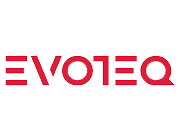Social Enterprise is a tricky concept. What does it mean to be an organization with a “triple bottom line?” How do you fund your business? And what does this mean to Dubai?
Social Enterprise Defined
A “social enterprise” is a business that lies at the intersection of traditional business and social good. To a social enterprise, yearly profit goals are not limited to the bank account, but extend into the community as the company seeks to improve the society and environment with which is works.[1]
Social enterprises cover the full spectrum of opportunity. Many social enterprises are involved in microfinance, providing banking and financial solutions to low-income or disadvantaged communities. Others are engaged in supporting or providing education, housing, agriculture, energy, healthcare and other services and projects. [2]
Examples of local social enterprises include Balthazar Capital, a microfinance firm based in Dubai. The firm, who presented a forum on financing for social enterprise at Shelter, aims to “reduce poverty in the Arab world” by bring “social capital” to the region and by supporting responsible growth of microfinance infrastructure.
CareZone is another Dubai-based social enterprise, developed to support local and international causes. CareZone’s mobile app allows users to collect coins, each holding a small monetary value that can then be donated to an organization or cause of their choice. The company also partners with local businesses, encouraging small business growth and increasing social impact.
Impact Investing
Impact investors are the financial backers behind social enterprise. These are a cadre of investors who seek to invest in companies that will not only be financially profitable, but will also be able to report quantitatively on their impact on communities and the environment.
Impact Investors include private equity funds, banking clients, affluent families and large foundations, all of who are dedicated to supporting social services and investment. [3]
These investors, and their international partners, tend to enter into longer-term contracts than typical investors, reflecting the extended length of time required to show return on investment in a social enterprise. Impact investors will generally invest in a social enterprise for at least five years before exiting.
Impact investors in the Arab region include Acumen Fund, Willow Tree Impact Investors, Ashoka, Skoll Foundation, Synergos (Arab World Social Innovators), Schwab Foundation for Social Entrepreneurship and Gray Ghost/Matters.
The Synergos Arab World Social Innovators (AWSI) program, for example, provided funding to an inaugural class of 22 social entrepreneurs in 2008. Marilena di Costi was among the first class of recipients. Ms. Di Costa runs The Butterfly Foundation, a not-for-profit organization that educates persons with disabilities in the United Arab Emirates. [4]
Social Enterprise in the Arab World
According to a 2010 report on social enterprise released by the Global Impact Investment Network Inc., J.P. Morgan Chase & Co. and The Rockefeller Foundation, the Middle East and North Africa are in the bottom of the pack of social investments.
By tracking the volume and value of impact investment deals in across the globe, the report seeks to quantify the number of social enterprises active in each area. In 2010, just six investment deals were recorded in the region, compared to 268 deals in Latin American and 411 deals in the US and Canada. Without a high volume of investment, social enterprise in the Arab world has been unable to flourish as it has in other regions.
The Emerging Social Enterprise Class in Dubai
Despite being largely ignored by international social business, Dubai has emerged as a regional hub for social entrepreneurs. The Emirate’s reputation for security, safety and support for entrepreneurship has contributed to a positive environment for business concerned with the social good.
To explain the trend, we spoke to Medea Nocentini, a social enterprise consultant and founder of Consult and Coach for a Cause, a volunteer organization that provides consulting services to social entrepreneurs.
“Dubai has been particularly successful in attracting young professionals from all over the world while promoting the local growing entrepreneurial spirit,” Ms. Nocentini said. “In addition, the slim start-up procedures and a tax-free environment facilitate social businesses’ set up and growth. I believe this is a perfect recipe for social businesses.”
As Dubai’s business portfolio has expanded, so too has the desire to promote a double or triple bottom line.
“Local entrepreneurial opportunities are particularly interesting in the technology and services industries, as well as in health care, education, and consumer goods. Dubai has shifted from a speculative to a more socially conscious environment where more and more professionals strive to make an impact on the community,” Ms. Nocentini observed.
Supporting Social Enterprise in Dubai
A number of organizations have emerged to provide support to young social ventures. Mentoring networks, governmental institutions, community projects, private sector companies and volunteer initiatives have each contributed support and guidance to social entrepreneurs.
Mowgli, Infive, Shelter, Baraka Ventures and Dubai + Acumen are just a sampling of the businesses and organizations shaping the social enterprise climate in Dubai. These organizations provide a mix of community, consulting services, educational programming and funding for social enterprise entrepreneurs.
Such efforts have not gone unnoticed.
“There are more and more signs that people are interested in creating social enterprises and supporting them,” commented Nicola Tanner, a social enterprise entrepreneur working in the education sector.
Ms. Tanner participated in a Speed Consulting event held at Shelter. The event, which was organized by Consult and Coach for a Cause and Baraka Ventures, matched a dozen social enterprise entrepreneurs with consultants who were particularly qualified to discuss some of the specific concerns facing these new ventures. Participants received advice on issues ranging from marketing to financing.






